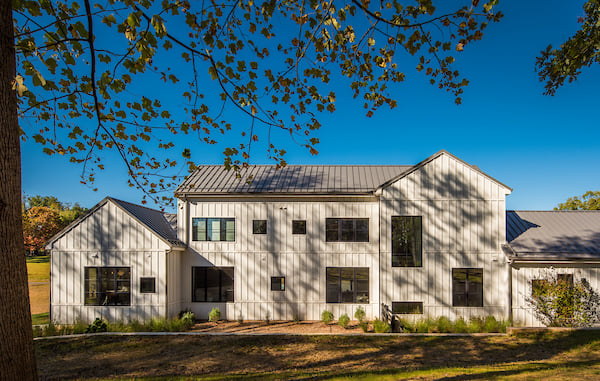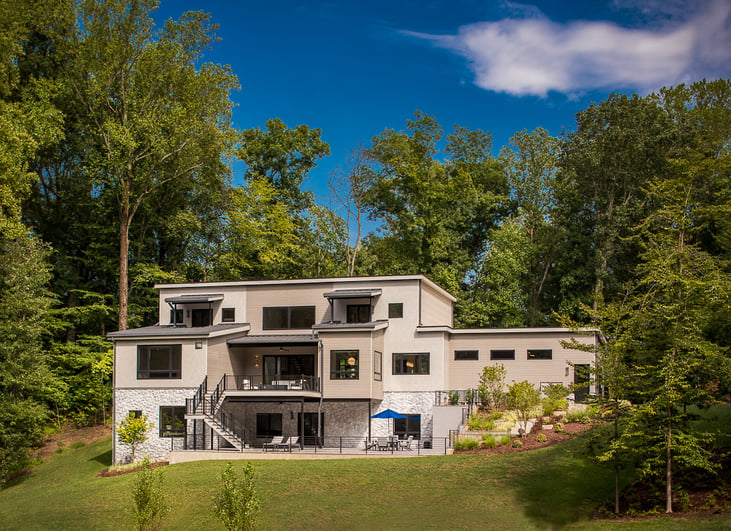Connect

When planning a custom home or even a small renovation, most people think about budgets, design, and timelines. What often gets overlooked are zoning laws, the rules that dictate what can and cannot be built on your land. Ignoring them can turn your dream project into a stalled or even canceled plan. Homeowners across Northern Virginia run into surprises when they discover regulations that limit height, setbacks, parking, or even tree removal. These rules exist to balance growth with community standards, but they often feel like hidden obstacles.
At AV Architects + Builders, we’ve seen how zoning laws affect projects at every scale. Our expertise in custom design and construction means we anticipate these challenges before they delay or derail your build. By weaving compliance into the design process, we protect both your investment and your peace of mind.
The good news is zoning laws are not roadblocks for your home renovation or your custom build. Instead, they act as guidelines that, when understood, make your project smoother and often more valuable. For example, understanding residential zoning and its impact on property values can help you make smarter decisions about location and design.
After reading this blog, you’ll walk away with a clearer understanding of lesser-known zoning rules in Northern Virginia, how they could affect your home or investment plans, and what you can do to stay ahead. We’ll also share practical steps to handle variances, permits, and appeals so you don’t feel caught off guard by technicalities.
 The Vista House, Great Falls, Virginia, AV Architects + Builders, Photography by Maxwell Mackenzie
The Vista House, Great Falls, Virginia, AV Architects + Builders, Photography by Maxwell Mackenzie
Zoning laws define how land can be used. They cover building size, lot coverage, use types, and even environmental concerns. While most homeowners think zoning is only about whether land is residential or commercial, it goes much deeper. As outlined in resources on zoning purposes, these regulations shape everything from neighborhood character to property values. Understanding them early saves time, money, and frustration.
When your plans conflict with zoning laws, you’re not out of options. Variances and special use permits provide flexibility. A variance allows exceptions when strict enforcement is unfair, while a conditional use permit approves non-standard uses that still fit community goals. In Northern Virginia, the City of Falls Church provides clear processes for filing, which often include public hearings. Preparation and design adjustments increase your chance of approval.
Non-compliance comes at a high cost. You could face stop-work orders, fines, or mandatory changes. Local governments don’t hesitate to enforce these regulations, and disputes can escalate into legal battles. Firms experienced in zoning dispute litigation stress the importance of addressing conflicts quickly to avoid delays.
Stormwater rules, floodplain protections, and tree preservation ordinances tie directly into land-use policy. These laws affect how you design outdoor living spaces or expansions. By planning with environmental rules in mind, you protect both your property and your community.
.jpg?width=1044&height=500&name=Photo%20(78).jpg) The Angle House, McLean, Virginia, AV Architects + Builders
The Angle House, McLean, Virginia, AV Architects + Builders
If your request is denied, you still have options. Appeals ensure fair treatment but require preparation, evidence, and often legal help. Resources like Rocket Mortgage’s guide on zoning laws outline the importance of knowing your rights and obligations before filing.
Even if zoning laws allow a project, homeowners associations can set additional rules. Restrictions on exterior colors, fencing, or even solar panels often come from HOAs. Guides from Bankrate and FirstService Residential explain how HOA rules overlap with municipal codes.

The Astron House, Great Falls, Virginia, AV Architects + Builders, Photography by Maxwell Mackenzie
At AV Architects + Builders, we help homeowners and investors move from idea to finished design while staying aligned with zoning limits. Start by reviewing guidance on preparing for renovation, strategies to design and build a custom home, and the biggest mistake to avoid when building. We understand which rules allow flexibility and which stop progress. We design with both in mind.
Our process makes zoning simpler to understand and act on. Schedule a discovery call to discuss your project goals. Visit our Learning Center for clear zoning and planning guidance. Get answers early before drawings and budget commitments form. Plan each step with clear expectations. Reduce delays by aligning decisions with zoning on day one.
Topics: